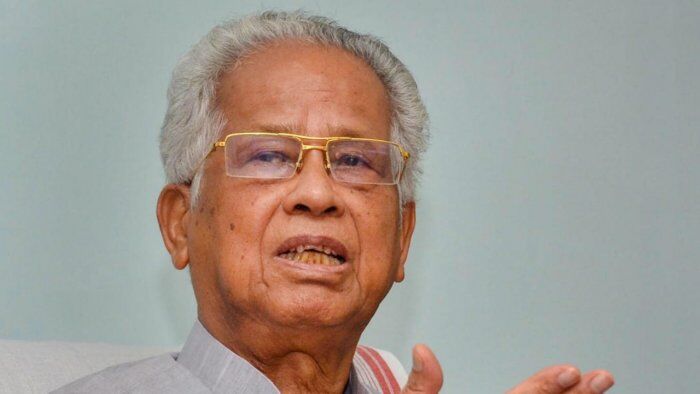Peacemaker

To say that the late Tarun Gogoi inherited a difficult legacy when he took on the CM post of Assam in 2001 is a gross understatement. When he came to office, insurgency, ethnic tensions and political divides ran rife throughout Assam. From day one, Gogoi had many difficult decisions to make and situations to resolve. In a state where development as an issue was lost to everpresent security threats, Gogoi boldly suggested that development could not wait for peace. Indeed, he made the case that the lack of development initiative by the government in the state was encouraging rebel groups to gain ground with the people. But the fighting had already taken a great toll on the state. The required resources to bring about the development projects that were needed were simply not there. Therefore, Gogoi presented his case to the Vajpayee government, appealing on the lines of promoting development and welfare as a method of quashing out the insurgency. It is noted that Gogoi used his previously built-up camaraderie with PM Vajpayee and Deputy PM Advani to great effect when it came to be convincing the Centre to relax norms for central sector schemes, His experience with politics at the Centre as a consistent figure in the Congress line-up helped cement these relations.
This is not to say that he did not fit into Assam's local political setup, Indeed, Gogoi enjoyed strong local support due to his political positions such as his defence of Assam's special category status that helped counter the negative image of the Congress Party in the state at the time. He was entrusted by the Congress high command with the responsibility of engineering a Congress restructure and revival in the State of Assam. Aside from mending bridges locally and bringing in national aid to the development of Assam, Gogoi also tapped external funding agencies like World Bank to get long term, soft loans. His effort bore fruit as investment and infrastructure projects slowly started springing up throughout the state, breaking a development stalemate that had only served to aggravate the existing chaos. In particular, Gogoi sought to give new direction and investment to the lives of the youth to wean Assamese youth away from the possibility of insurgency. This was part of his larger efforts to not only stamp out insurgency but also eliminate the fear of same in the citizens of Assam. While operations against insurgents continued in Assam, Gogoi was always the first to extend an olive branch to the rebels in the hope that good sense would prevail. He believed that political representation and partnership in the changing Assam would make the rebel groups more invested in preserving the order of things. Gogoi also did groundbreaking work in promoting the active empowerment of women in the state — at home, at work, at school or in the electorate. He has also stood in defence of the rights of migrants, being a staunch defender of the 1971 cut-off date set by the Assam Accord. But of course, in a career spent at the forefront building bridges in difficult conditions, failures are always a lurking possibility and it was under his rule that BJP gained a foothold in the state.
Above all his successes and failures, however, is the idea that Tarun Gogoi was one of the last of a great generation of politicians who enjoyed support and admiration from all sides. Politicians who bridged gaps with those in opposition to find a better path and were always ready to hear criticism and take responsibility for tough decisions as the job dictates. As he often himself explained, he was a politician who was not afraid of dipping in and making tough calls when needed. Above all, he was never one to hide an unpopular or bold opinion.
As India and Assam mourn the loss of a great leader, Congress has, even more, to mourn as the death of Gogoi has left
the party without direction or centre in the leadup to the upcoming elections. There is no doubt, however, that Gogoi's legacy as a man who brought peace to a strife-torn Assam will endure.



